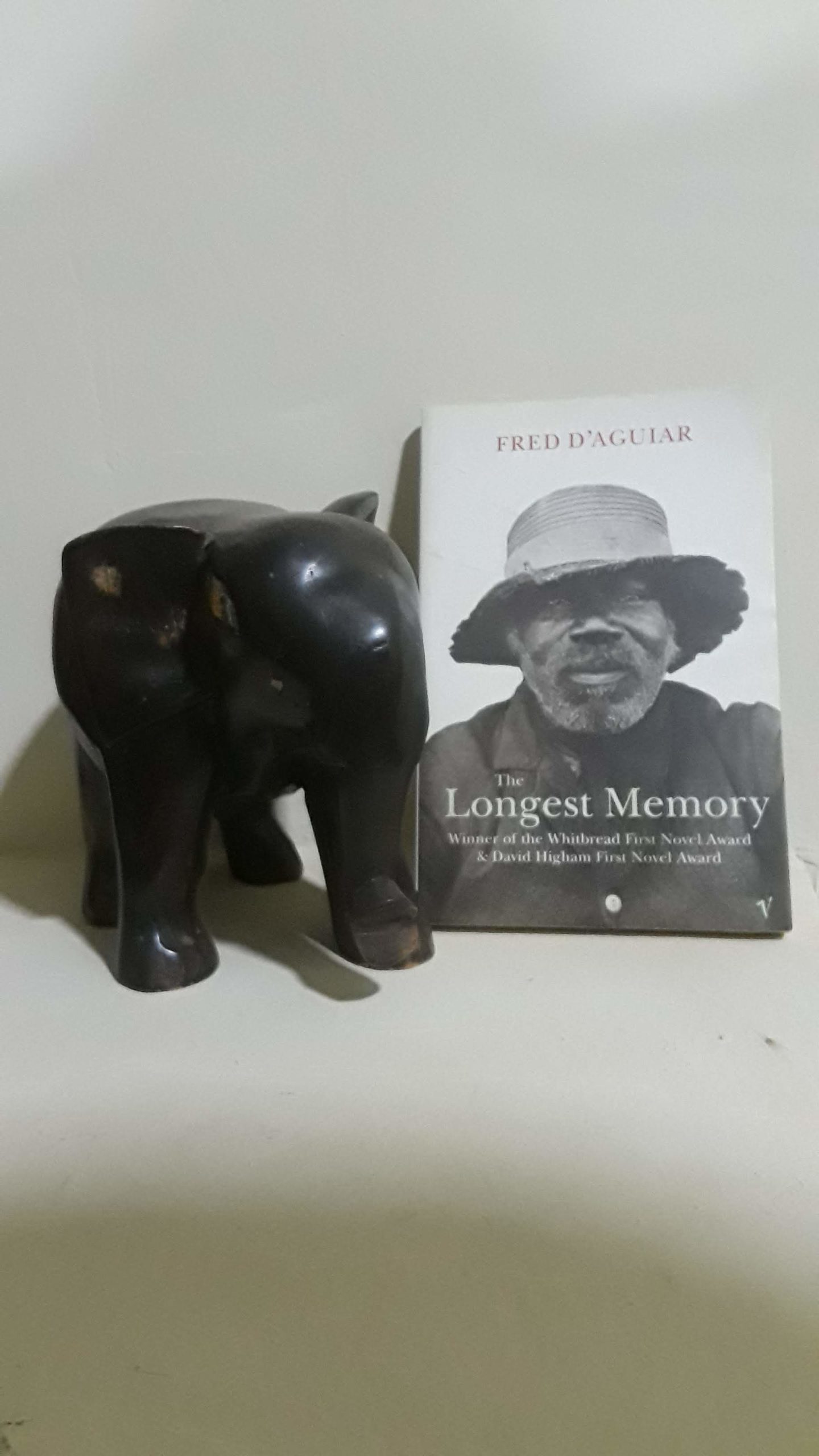
The Longest Memory
I am more familiar with the poetry of Fred D’Aguiar than his prose, so I was thrilled when I discovered his debut novel at the Library of Africa and the African Diaspora (LOATAD) in Accra where I was a writer-in-residence in April earlier this year.
Pulling out this slim compact novel from the library’s shelves, I knew I had to pose it next to a figurine of an elephant, and thankfully, LOATAD had one. You see, elephants are reputed to have formidable memories. They never forget a face, it’s said. Case in point: a few months ago, a yet-unverified story about an elephant trampling an old woman to her death in India, and then showing up to her funeral to stomp on her coffin some more went viral, and social media was rife with speculations about the nature of the hurt the alleged victim must have inflicted on the killer elephant to warrant such retribution.
But D’Aguiar’s book has nothing to do with elephants and their grievances, real or imagined; his novel is sent on an 18th century plantation in the American South and the memory he refers to is that of the Transatlantic slave trade. An uncomfortable memory for many, but regularly probed and analyzed in literature and other art forms. My interest in the book was also personal. The novel I travelled to Ghana to write is also an interrogation of memory, that of the Nigerian Civil War, a painful and often repressed memory in our collective psyche. I needed to know how my literary forebears had navigated similar thorny paths.
Contrary to the plan I had drafted before setting off, I didn’t complete the novel during my residency. Matter of fact, my plans for the novel changed. Reading D’Aguiar’s book and seeing how he played with various forms of narrative – first-person vignettes, poetry, and newspaper articles – gave me a new perspective on my project as well as a writing lesson I’m in no hurry to forget.
Akumbu Uche is a Nigerian writer. In 2022, she was a writer-in-residence at the Library of Africa and the African Diaspora (LOATAD). She lives in Owerri.
